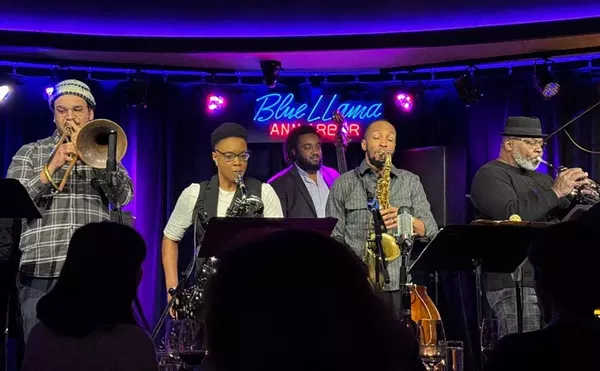This wonderfully articulate album is saxophonist-composer Osby's latest report from "the Zero Zone," a condition of absolute concentration (samadhi) which he likens to the Buddhist state of "no-mind." Osby's musical grail is that "seldom experienced but extremely high level of communicative exchange" in which performers and listeners are able "to freely draw upon (their) complete pool of knowledge" without hindrance.
All but one of the compositions on this date are Osby's and reflect his long-standing commitment to creating interactive structures for effective small-group improvisation. In Writing Degree Zero, Roland Barthes observed that "structure is the residual deposit of duration." Thus, while "archaeological" allusions to the modernist vocabulary and syntax of postwar jazz abound here, they are neither nostalgic for, nor deferential to, the discourse of past masters.
Examples include "Minstrale," a Monk-inflected homage to the great Andrew Hill; Muhal Richard Abrams' eloquent "Two Over One"; "Nekide" and "Ozthetica" with their echoes of Lee Konitz and Wayne Shorter; and the fleet boplicity of "Extreme Behavior" and "Concepticus in C" (for Steve Coleman).
Osby's beautiful tone and technical fluency are consistent at any tempo, but are especially compelling in his ballad playing, which features a sublime balance of emotional intensity and improvisational poise. Joining him in "the Zero Zone" are longtime collaborators Jason Moran on keyboards, Kevin McNeal on guitar, Lonnie Plaxico and Dwayne Burno on bass, and Rodney Green on drums. While each of these gifted players brings a conceptually distinctive voice to the proceedings, it is in their collective, at times empathic interplay that the expressive possibilities of Zero are most evident.
Zero is neither a gratuitous blowing session nor a snooze-inducing sampler of sonic wallpaper. Rather, with admirable economy and focus, these tracks address the "inner ear" and invite the listener to enter into a mindfully musical exchange.






